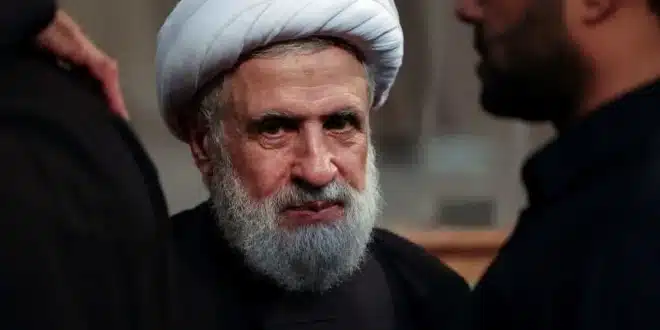Images and videos showing more than 100 individuals dressed in black assembling outside a restaurant in Khalde caused widespread concern across Lebanon on Monday. The gathering, occurring just hours before a pivotal cabinet session scheduled to address the contentious issue of Hezbollah’s disarmament, drew immediate public and media attention.
Restaurant Denies Political Motive Behind Gathering
Despite the speculation, the management of the Khalde-based restaurant clarified that the gathering had no political implications. Speaking to Al-Jadeed TV, the restaurant stated that the assembly was a celebratory event marking a social media milestone for the brand.
The footage included scenes of balloons, as well as the presence of buses and vehicles associated with Lebanon’s army and Internal Security Forces or municipal police. These visuals only fueled the initial anxiety, especially given the country’s volatile political climate.
Sources familiar with the restaurant’s operations also explained to Naharnet that the individuals seen in the footage were actually employees from various branches of the chain. The all-black clothing, they emphasized, was simply the company’s official staff uniform.
Historical Parallels Stir Unease
The sight of so many black-clad youths triggered uncomfortable memories for many, drawing comparisons to a politically charged march held by Hezbollah on February 18, 2011. That event, characterized by a similar display of black-shirted individuals, was widely interpreted as a show of strength directed at Druze leader Walid Jumblat.
At the time, Jumblat had been balancing his leadership role within Lebanon’s minority Druze community while maintaining a precarious alliance with Saad Hariri. The perceived threat of Hezbollah’s show of force prompted him to shift his political support toward Najib Mikati—Hezbollah’s favored candidate for prime minister—marking a significant break with Hariri.
Jumblat’s decision was seen as a pragmatic move to protect his community amid increasing sectarian tensions. Although he had officially exited the March 14 alliance in 2009, he had retained a cordial relationship with Hariri until that pivotal moment.
Broader Implications
This week’s episode in Khalde unfolded at a particularly sensitive juncture for Lebanon. With Hezbollah’s military role under scrutiny and discussions around disarmament looming, even seemingly unrelated public gatherings are viewed through a lens of political caution and historical precedent.
While the restaurant has assured the public that the event was purely celebratory, the timing and imagery reignited fears of political signaling—a reflection of how deeply Lebanon’s past confrontations continue to influence its present discourse.


